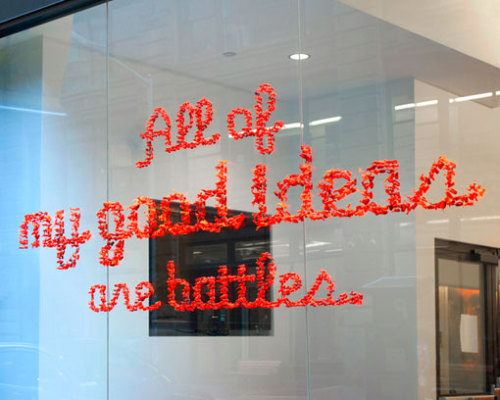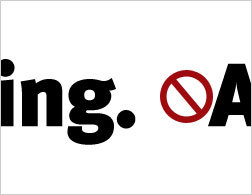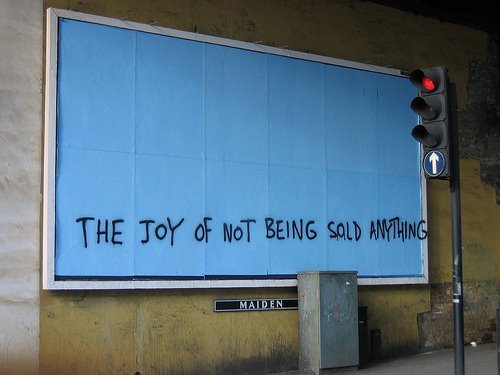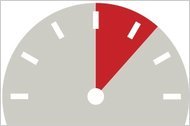
via s3.amazonaws.com
I've loved the idea of a "third space" since I learned of it only a year ago. I can't wait to go here.

There’s no space for the extra space. By Farhad Manjoo on Slate.
I saw this piece earlier in the day and loved it. We don't need two spaces after the period. It's just a convention that can be changed. Although, as I typed this I found myself double-tapping the space bar after periods and corrected it after the fact. Ugh.
Also, why do people put their hats on AFTER they get outside? You lose all that heat off the top of your head and then trap cold air inside. Put it on before you get out the door and you won't even feel the transition into cold weather.

I've been thinking a lot lately about useful ads, good ads, value-filled ads that inform us and motivate us. Ads about community events, blood donation, clean sidewalks, and healthy living. Ads that communicate the variety in our culture, the foods, the music, the arts, the people and their ways of thinking.
Ads that don't have to sell.
On procrastination and how to think about the substitute activities that we do instead of dong work:
When you procrastinate, you’re probably not procrastinating because of the pain of working, because on a moment-to-moment basis, being in the middle of doing the work is usually less painful than being in the middle of procrastinating.
That is pretty useful to remember. And another tidbit:
I’m starting to think that […] you do not regain mental energy from [procrastination. Success and happinesscause you to regain willpower; what you need to heal your mind from any damage sustained by working is not inactivity, but reliably solvable problems which reliably deliver experienced jolts of positive reinforcement.
I think this is a pretty useful insight - when compelled to procrastinate, what you choose to do can greatly affect whether you manage to get actual work done later.
In October of last year, there was a great piece in the New Yorker about procrastination that convinced me to change my working habits immediately.
I took on exactly this philosophy that procrastination is a personal signal of unhappiness. Neal Stephenson once wrote, "Boredom is a mask that frustration wears". The usual precursor to procrastination was boredom, which told me two things; I was frustrated about something that was making me unhappy, which in turn was making me avoid what I was frustrated about.
I began looking for segues that would lead me back to productivity. If I had to read a long policy paper and I was procrastinating, I would read a novel instead, which would gear the reading side of my brain and get the right word-scanning juices flowing to ease into governmental policy.
If I had to analyze a report on work RVU productivity variations for five specialty practices, I would take a break from the computer, walk, and observe in detail my surroundings, exercising my analytical brain to see things I normally wouldn't see. When I got back to the task at hand, it'd be a natural transition to sit in front of the computer for a few hours comparing numbers.
As noted above, having self-awareness about how you feel when you're in the middle of something produces direct results in your behavior. I'd rather be in the middle of a good book or walk than surfing the web. Scheduled surf time is far more rewarding.
Here it is: approximately 60 percent of the increase in the number of college graduates from 1992 to 2008 worked in jobs that the BLS considers relatively low skilled—occupations where many participants have only high school diplomas and often even less.
"Here's how career changers are most likely to land a job: Make a list of 100 people who know you. They don't even have to love you. Let's take the worst case: a boss who fired you. He might be willing to give you a lead on a better-suited job. And that's the worst case. Chances are that if your list includes your relatives, your parent's and wife's relatives, your friends, your wife's and parents' friends, your past and present coworkers, bosses, customers, and vendors, your haircutter, accountant, lawyer, doctor, church members, co-volunteers, etc., you'll likely get leads to people willing to consider you for a project manager job outside of defense or refer you to someone who might. And you might hear about career areas you never would have thought of in a million years. Last week, I got a call from a client who got a job at a toy company monitoring plush stuffed-animal factories in China."
The health & wealth of 200 countries over 200 years, in less than 5 minutes. Wait for the post-colonial explosion.
Via WaPo’s Ezra Klein.
Hans Rosling is amazing. If you like this, don't miss his TED talks.
Doubts can find no foothold in our minds as we seldom concern ourselves with fleeting visions of failure.

“Yet Americans watch 35 hours of television a week, according to a Nielsen survey. (Increasing amounts of that time are spent watching other people cook). And although there certainly are urban and rural pockets where people have little access to fresh food, about 90 percent of American households own cars, and anyone who can drive to McDonald’s can drive to a supermarket. But perhaps most important, a cooking repertoire of three basic recipes can get anyone into the kitchen and beyond the realm of takeout food, microwaved popcorn and bologna sandwiches in a few days.”
Cut-and-dry advice from Mark Bittman that seems sensible enough. The staple stir-fry, salad and rice/lentil combo are basically how I got started cooking again. In NYC, fighting the urge to eat out is difficult. It’s too easy to get great restaurant food and on top of that, grocery trips seem outrageously expensive and you wonder about the cost/benefit.
Bottomline: You know what you put in your food. Salt, oil, fat, and a clean kitchen is up for grabs at a restaurant. The peace of mind you get cooking at home is worth it.
"So I’ve crossed the threshold where Facebook’s value isn’t worth the hassle to use it. I concluded that the best choice was to simply drop the service altogether and invest my time elsewhere.......From a subjective perspective, I’m not particularly disappointed. I’ve been wanting to spend less time online and more time connecting with people in person, so these problems may simply be part of the way that desire manifested."
-Steve Pavlina on Leaving Facebook
Steve's eloquent reasoning for leaving Facebook echoes my sentiments exactly. It's a clunky time-suck that doesn't add to the strong friendships I already have and creates an awkward resentment towards prior friends who I believe should have called when they got married, had a baby, moved and so on.



I'm sad to say I missed Snowpocalypse 2009 completely. But I still got some good shots. The city was a mess on Thursday so I can only imagine what Monday was like. That last shot truly is a burnt-out car, most likely set on fire from skidding its wheels too much.
Having successfully weened myself off the microwave over the last 7 months, I'm now sensitive to the taste of heat when I do use the microwave. Microwave hot is sharp and sudden, as opposed to say stove hot, which has an even distribution and stays warm for much longer. Sensing the different quality of heat is most apparent in liquids, especially tea. If not for any other health benefits, gaining the ability to note the difference was worth it.
Similarly, another experiment I've been running in the winter is heating myself through exercise instead of turning up the thermostat. Coming in from the cold, blistery weather, my natural instinct used to be to turn on the external heater or crank up the dial on the thermostat. Over the next half hour, I warmed up, but the room felt like a sauna. You could smell the nutty odor of the heat. The rest of the time became a battle trying to find a balance between the ups and downs of fake heat.
Instead, I began doing 10 minutes of jumping jacks, high knees, butt kicks, and pushups. My muscles needed to move and no external heat source was going to make them truly heat up the way exercise did. At the end, I felt great thanks to the endorphins, and the feeling of warmth lasted for hours. If I did need to use the heater, I was more attuned to when I should turn it off.
Discovering alternatives to the usual wasn't planned. It truly just happened as a result of following my instincts or trying something new. Planning helps tremendously with a clear, task-based objective. I'm amazed though at the power of long-term experimentation and the unexpected benefits it can offer.